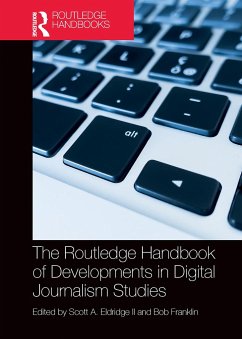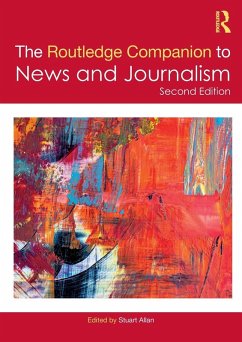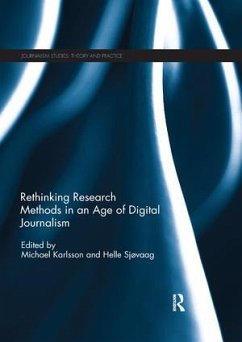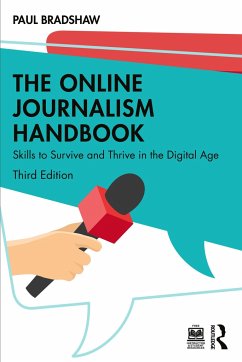Nicht lieferbar
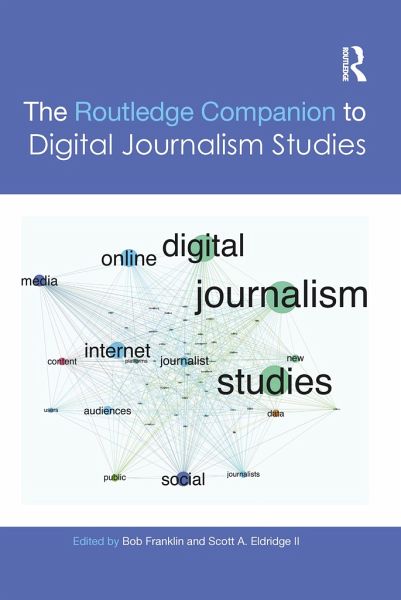
The Routledge Companion to Digital Journalism Studies
Versandkostenfrei!
Nicht lieferbar
The Routledge Companion to Digital Journalism Studies offers an unprecedented collection of essays addressing the key issues and debates shaping the field of Digital Journalism Studies today.Across the last decade, journalism has undergone many changes, which have driven scholars to reassess its most fundamental questions, and in the face of digital change, to ask again: 'Who is a journalist?' and 'What is journalism?'. This companion explores a developing scholarly agenda committed to understanding digital journalism and brings together the work of key scholars seeking to address key theoreti...
The Routledge Companion to Digital Journalism Studies offers an unprecedented collection of essays addressing the key issues and debates shaping the field of Digital Journalism Studies today.
Across the last decade, journalism has undergone many changes, which have driven scholars to reassess its most fundamental questions, and in the face of digital change, to ask again: 'Who is a journalist?' and 'What is journalism?'. This companion explores a developing scholarly agenda committed to understanding digital journalism and brings together the work of key scholars seeking to address key theoretical concerns and solve unique methodological riddles.
Comprising 58 original essays from distinguished academics across the globe, this Companion draws together the work of those making sense of this fundamental reconceptualization of journalism, and assesses its impacts on journalism's products, its practices, resources, and its relationship with audiences. It also outlines the challenge presented by studying digital journalism and, more importantly, offers a first set of answers.
This collection is the very first of its kind to attempt to distinguish this emerging field as a unique area of academic inquiry. Through identifying its core questions and presenting its fundamental debates, this Companion sets the agenda for years to come in defining this new field of study as Digital Journalism Studies, making it an essential point of reference for students and scholars of journalism.
Across the last decade, journalism has undergone many changes, which have driven scholars to reassess its most fundamental questions, and in the face of digital change, to ask again: 'Who is a journalist?' and 'What is journalism?'. This companion explores a developing scholarly agenda committed to understanding digital journalism and brings together the work of key scholars seeking to address key theoretical concerns and solve unique methodological riddles.
Comprising 58 original essays from distinguished academics across the globe, this Companion draws together the work of those making sense of this fundamental reconceptualization of journalism, and assesses its impacts on journalism's products, its practices, resources, and its relationship with audiences. It also outlines the challenge presented by studying digital journalism and, more importantly, offers a first set of answers.
This collection is the very first of its kind to attempt to distinguish this emerging field as a unique area of academic inquiry. Through identifying its core questions and presenting its fundamental debates, this Companion sets the agenda for years to come in defining this new field of study as Digital Journalism Studies, making it an essential point of reference for students and scholars of journalism.






